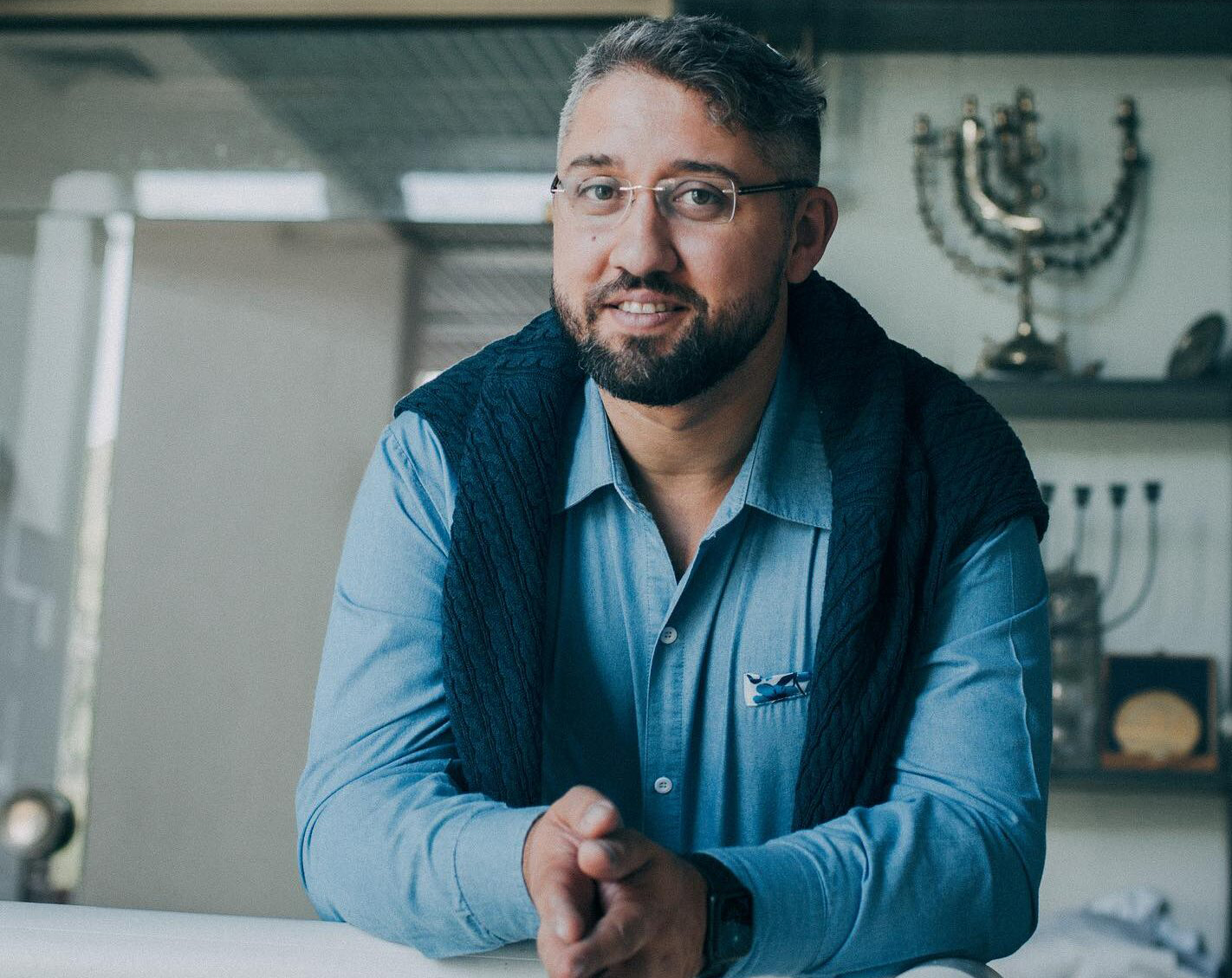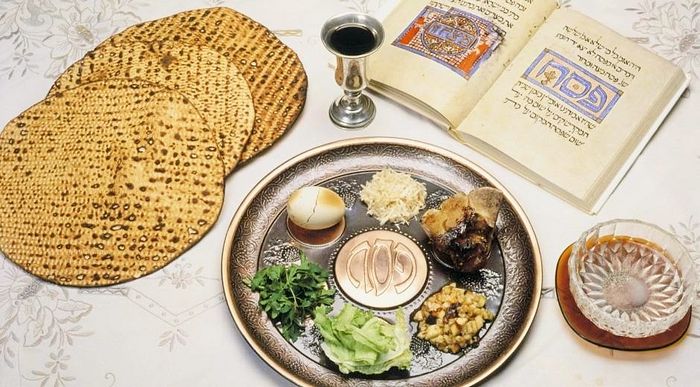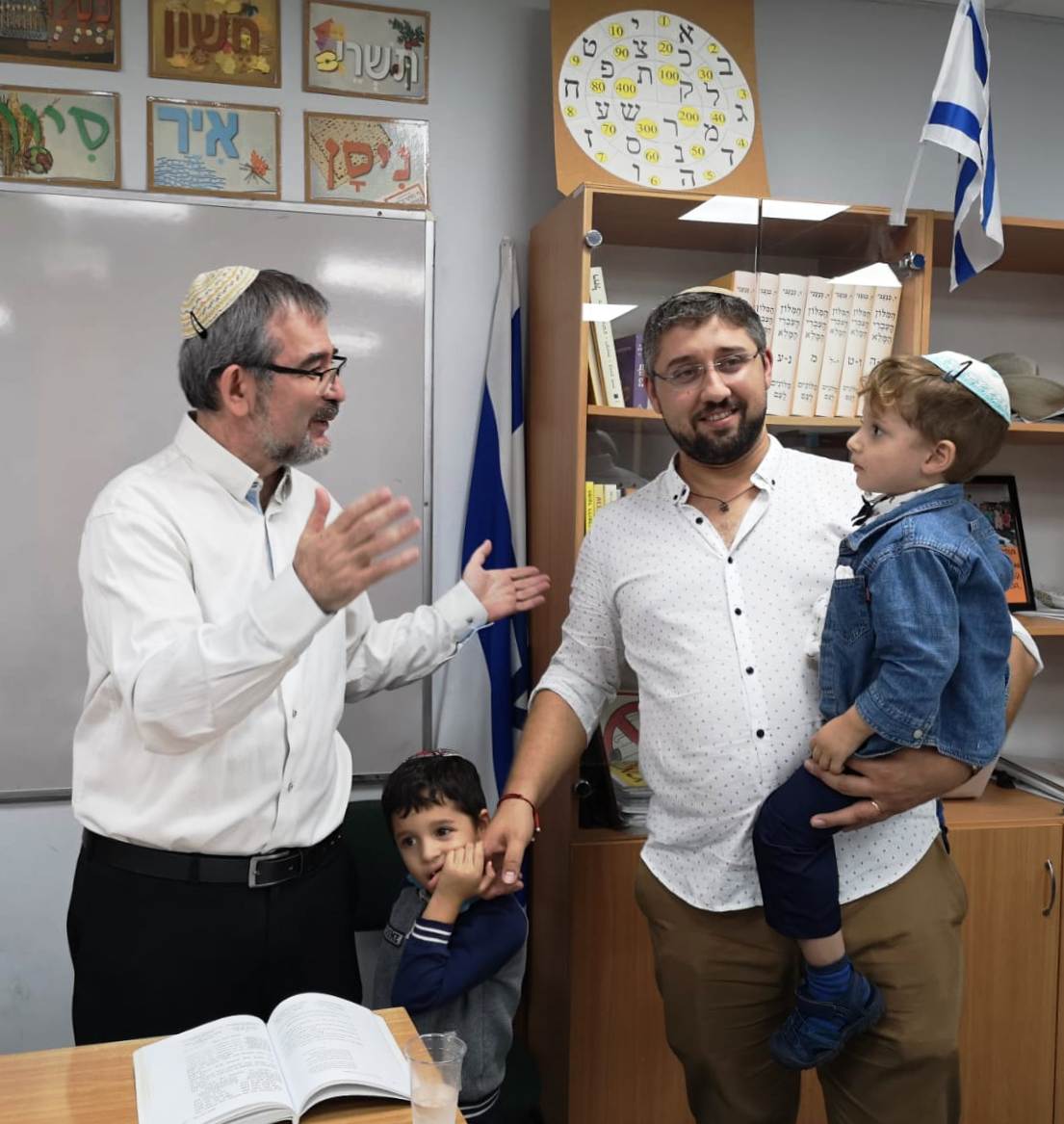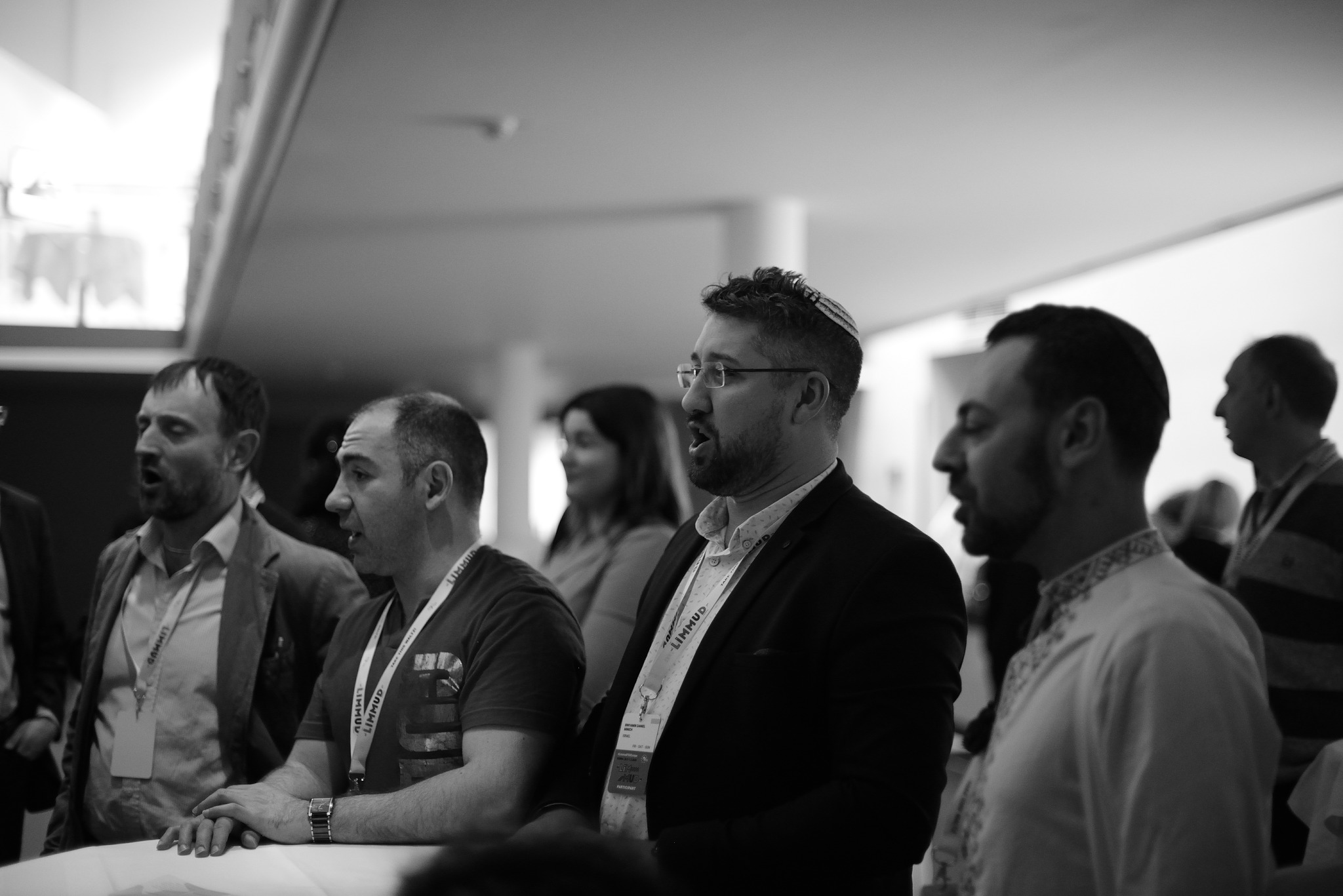Binyamin Minich: You don't have to make aliyah and immigrate to Israel to feel connected

Binyamin Minich, rabbi of the Daniel congregation in Tel Aviv, speaks on Hromadske Radio, explaining how Pesach is celebrated in Ukraine and worldwide.
[Editor’s note: This podcast originally appeared on 29 April 2024.]
About Pesach
Binyamin Minich: Speaking about Pesach from a religious point of view, it is the holiday of the Israelites' exodus from Egypt. At that time, they did not yet call themselves Jews but referred to themselves as the sons of Israel.
This holiday is celebrated for seven days in Israel and eight days abroad. The reason is that the Jewish calendar 2,000 years ago was based on the decisions of the rabbinical court seated in Jerusalem. They had to deliver a message that a new month had begun, which could take more than one day. Therefore, the largest Jewish community outside of Israel, the one in Babylon, added extra days to all major holidays: Passover, Pentecost (Shavuot), Sukkot, Rosh Hashanah, and Yom Kippur.
The Passover holiday has four names:
- This name means "to pass," reminding us of how the Angel of the Lord passed over the Israelites, and they were not affected by the death of the firstborn in Egypt. This name later came to be used in reference to a special sacrifice offered in the Jerusalem temple.
- Hag Ha'Aviv is the holiday of spring. Spring is very short in the land of Israel.
- Hag Ha-Matzot is the Feast of Unleavened Bread when we don't eat baked bread all week. This meaning comes from two sources. On the one hand, we have an instruction from God that we cannot eat anything sour during this week. Then, there is a story of this holiday according to which the Israelites tried to get out of Egypt so quickly that their dough didn't rise. Therefore, there are two meanings: planned and unplanned. That is, we were told not to eat other bread, and that was how it happened.
- Hag ha-Herut is the holiday of freedom.
If we are looking for meaning, each of the four names of the Passover can give us something to think about. This year, we are constantly thinking about freedom. As we all know, there are more than 130 Israelis who cannot celebrate this holiday with their families because they are held captive in Gaza

Traditions to be followed on Passover
Binyamin Minich: This seven-day period opens with a festive dinner. The most famous tradition is the Passover Seder, a dinner on the first night — and the second night for those celebrating outside of Israel. Seder means "order." There are 15 stages of this dinner when we talk about the exodus and consume different kinds of food. However, the most important commandment for this dinner is to talk about the exodus from Egypt and the meaning of freedom for us today.
Yelyzaveta Tsarehradska: Is work allowed during this holiday?
Binyamin Minich: Days 2 through 6 in Israel and 3 through 6 outside the country are called "ordinary days of the holiday," meaning that we can work and do whatever we need. Only the first and last days are holidays celebrated 100 percent.
The days of Pesach are not very hot. You can go out of town, picnic, and meet your family. Children do not go to school. This is a very festive day that can be compared to Christian Easter. Pesach is the biggest of holidays.
Yelyzaveta Tsarehradska: I often hear Pesach being compared to Easter in Ukraine. Is this comparison appropriate?
Binyamin Minich: In this case, this comparison is very accurate. The Christian holiday comes from a story of the Pesach supper when Jesus established the tradition of bread and wine. It took place on the Passover Seder. Therefore, it is very accurate to compare Easter and Pesach, even if these are different holidays with different symbolic meanings today.
Memories
Binyamin Minich: Last week, I returned to my childhood memories. I celebrated the Seder in Tbilisi this year for the first time outside Israel since the last free Pesach holiday in the Crimea in 2012. I was born and raised in Kerch and first celebrated Seder at the age of 8 or 9. These were the first years when a Jewish community took shape in Kerch. Students from the USA came and told us how to celebrate Pesach because no locals knew that. It was a big holiday, and I was among the youngest participants. At the Seder, children are allowed to search for the last piece of matzah.

Why is it difficult to preserve traditions?
Yelyzaveta Tsarehradska: Why is it difficult to preserve traditions? Why did the Kerch Jews have to wait for Jews from the USA to help restore knowledge about the holiday?
Binyamin Minich: It's very simple. The Soviet period was when all religious and other traditions were forbidden. While the Soviet authorities turned Christmas into New Year celebrations, nobody did anything to the Jewish holidays except banning them entirely. My mother's grandmother was the last one in the family to have matzah mailed to her every Passover, but she no longer knew how to celebrate. She was born on the eve of the Second World War, and her family no longer celebrated anything because Jewish schools were closed in 1927. When the Nazis came to kill the Jews, no one knew how or what to celebrate. And after the war, no one wanted to. Everyone just wanted to survive.
Jewish families did not wish to be like all Christians because they remembered about their Jewish background. Tha was how communities began to emerge in big cities. It was easier. That's why Kyiv had several Jewish communities — progressive, Hasidic, and Orthodox — by the late 1980s and early 1990s, while small cities like Kerch followed suit sometime in 1996-1997.
Is Pesach celebrated in the Crimea now?
Binyamin Minich: I think it is available in general. Russia does not like diversity. Instead, it works according to the system "one church — one state — one president" — and one Jewish community, too. That is why Russia's Federation of Jewish Communities has taken all the Crimean communities under its wing. As far as I know, local communities have everything they need to celebrate Pesach.
Yelyzaveta Tsarehradska: Is there a difference between the way Pesach is celebrated in the Crimea and Israel?
Binyamin Minich: When we celebrate Pesach, we talk about the exodus from Egypt and the journey to the land of Israel. It has an added meaning when we celebrate it in the land of Israel because this is where the Israelites came. When we celebrate outside of Israel, we have an understanding that after the exodus from Egypt and the first arrival in the land of Israel, Jewish history did not stop. Instead, it continued. The Jewish people were driven out of the land of Israel twice. Today, it is also an opportunity for communities outside of Israel to reflect on their connection to the Israeli state. One does not have to move, make aliyah, and immigrate to Israel to feel connected to this country. Therefore, it is also an opportunity for communities around the world.

Is the celebration of Pesach in Israel different this year?
Binyamin Minich: Yes. I heard that they did it in Israel, too. In Tbilisi, we placed an empty chair at the festive table and tied to it a photo of the youngest child captured on 7 October. He was nine months old then. I hope he is alive. We also talked about him and his family, which is also in Gaza.
We talked about the fact that the path to freedom is endless. It cannot be completed by arriving at some place. History always continues. We have to work very hard to keep our freedom.
This program is created with the support of Ukrainian Jewish Encounter (UJE), a Canadian charitable non-profit organization.
Originally appeared in Ukrainian (Hromadske Radio podcast) here.
This transcript has been edited for length and clarity.
Translated from the Ukrainian by Vasyl Starko.
NOTE: UJE does not necessarily endorse opinions expressed in articles and other materials published on its website and social media pages. Such materials are posted to promote discussion related to Ukrainian-Jewish interactions and relations. The website and social media pages will be places of information that reflect varied viewpoints.



















